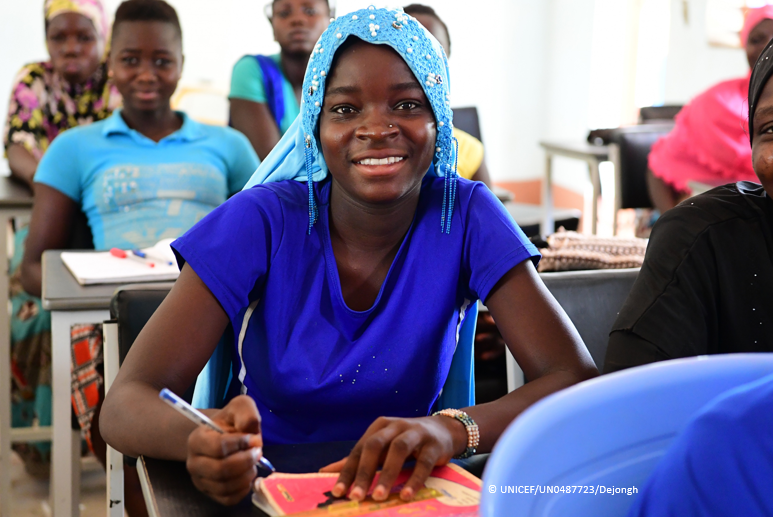This project is supported by the L'OCCITANE Foundation.
Context
Since 2000, Burkina Faso has been committed to ensuring access to quality education for all children (EFA). The education sector monitoring indicators show a good trend in the level of gross enrollment rates and equitable access of girls and boys to school. For the 2018-2019 school year, the gross enrollment ratio (GER) was 89.5% (89.9% for girls) in primary education and 50.6% (54.2% for girls) in lower secondary education, compared with 44% and 14% respectively in 2000. Despite this progress, the country still had 52.1% of primary school-age children and 50.3 % of secondary school-age adolescents who did not attend school in 2014. Projections estimate more than 3 million children out of school in 2021, and more than 50 percent of children aged 6 to 16 are concerned. The majority of these out-of-school children are girls who live in rural areas and come from poor families.
In addition, the insecurity facing the country and the internal displacement of populations are straining social services in general and the education system in particular. Thus, in July 2021, the education system recorded 2,244 schools closed, affecting 305,000 students according to OCHA (the United Nations Office for the Coordination of Humanitarian Affairs). The prolonged school break following the closure of schools linked to the COVID-19 pandemic has also resulted in children dropping out of school with little chance of returning to school. In response to this situation of educational disruption, the government has implemented a national schooling strategy for students in areas with strong security challenges 2019-2024, to offer alternative local or remote educational services mainly by radio. These devices do not, however, make it possible to cover all out-of-school children, especially girls.
Supported Project
In 2022-2023, the L'OCCITANE Foundation is once again making a commitment to UNICEF to support the education of children in the Centre-Ouest region of Burkina Faso. The main objective of this 5-year project is to promote access, completion and success in school for children in vulnerable situations, including more than 1,000 girls and about 50 boys in middle and high school.
In concrete terms, this project will cover all costs related to schooling (tuition fees, school supplies, food support, means of transportation, solar lamps, accommodation in shelters for girls in difficult situations with their families, academic support...). It will also enable the implementation of activities aimed at improving the school environment for girls by setting up menstruation management systems, raising awareness of gender-based violence in the school environment, training teachers in child- and gender-sensitive pedagogy, and supporting the care of victims of gender-based violence. Another area that the project wishes to emphasize is social mobilization to support girls' education, in particular by raising community awareness so that social practices that are detrimental to girls' education and success in school (early marriage and pregnancy, excessive domestic work, etc.) are abandoned, since unfortunately these practices still exist in the country, particularly in rural areas. Finally, the project will implement activities that will allow girls to increase their skills on topics related to their daily lives (responsibility for early marriages and pregnancies, management of household chores, speaking out, leadership, etc.).
In order to take into account the migration crisis that the country is currently facing, the project will place special emphasis on the recruitment of girls from displaced families, approximately 10% of the beneficiaries, as needed.
Some Figures
Budget 187,440 euros
Goal 120 girls supported
History of the Partnership
In 2021-2022, the Foundation supported the first year of this project, and supported the schooling of 500 girls. For more information, see here.
The Foundation has been the partner of UNICEF on its education projects for a long time. To know more about the history of the partnership, see here.
*UNICEF does not endorse any company, brand, product or service.
